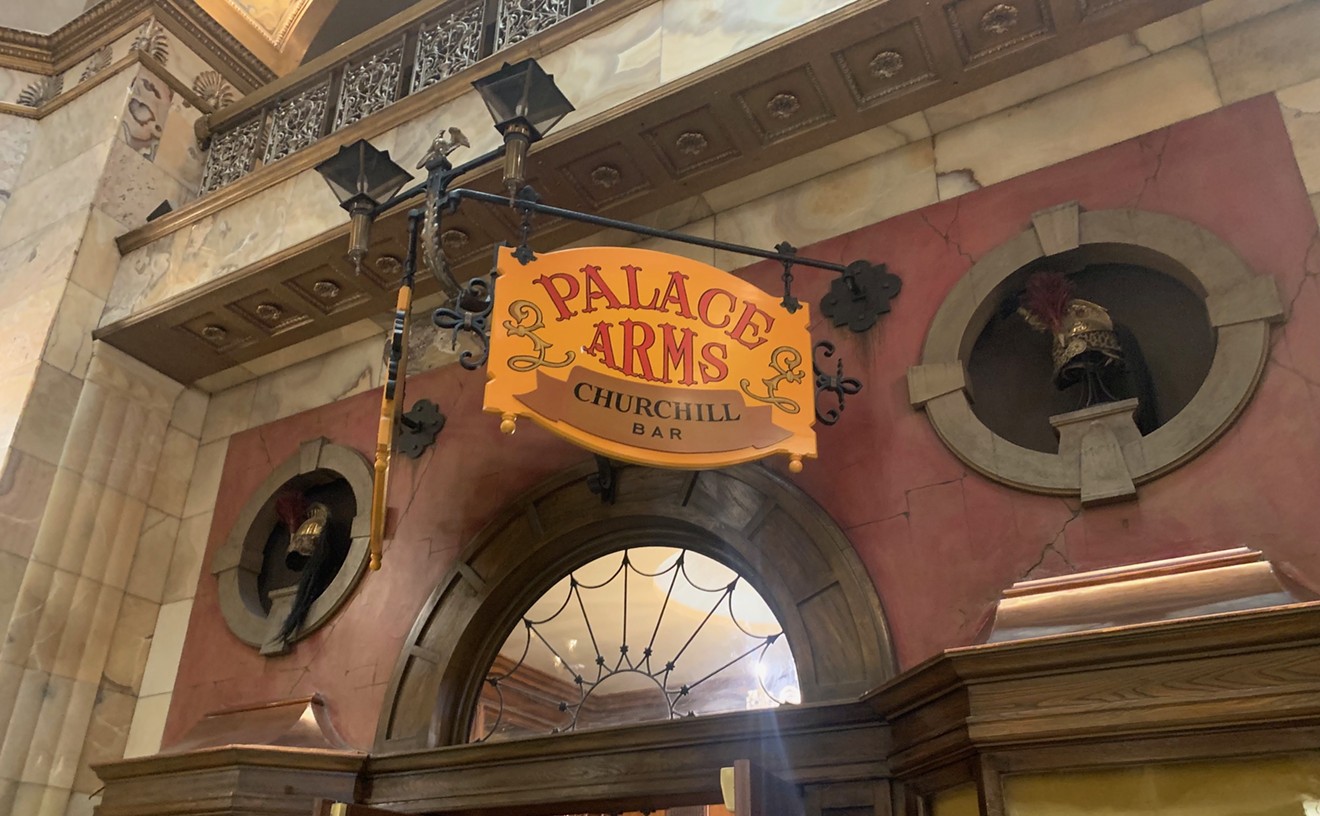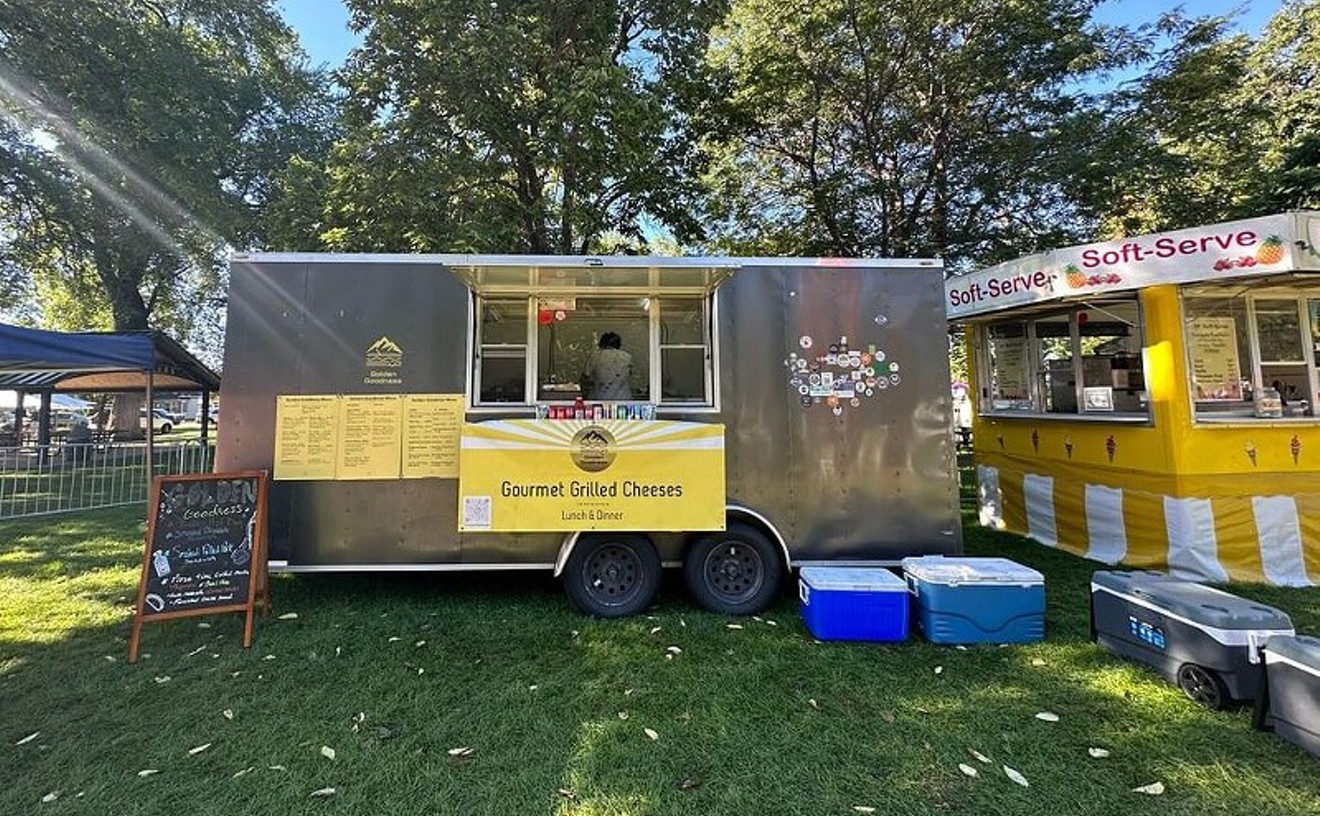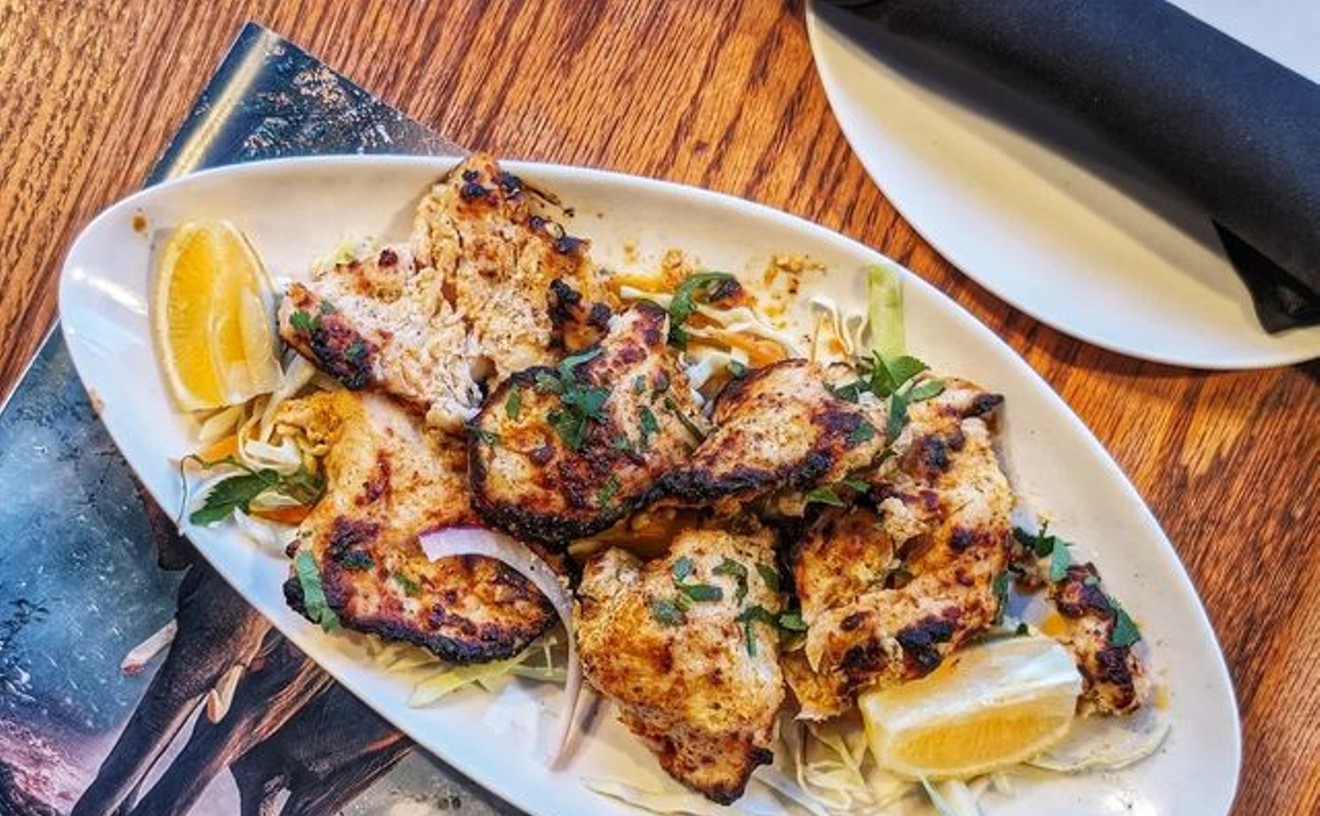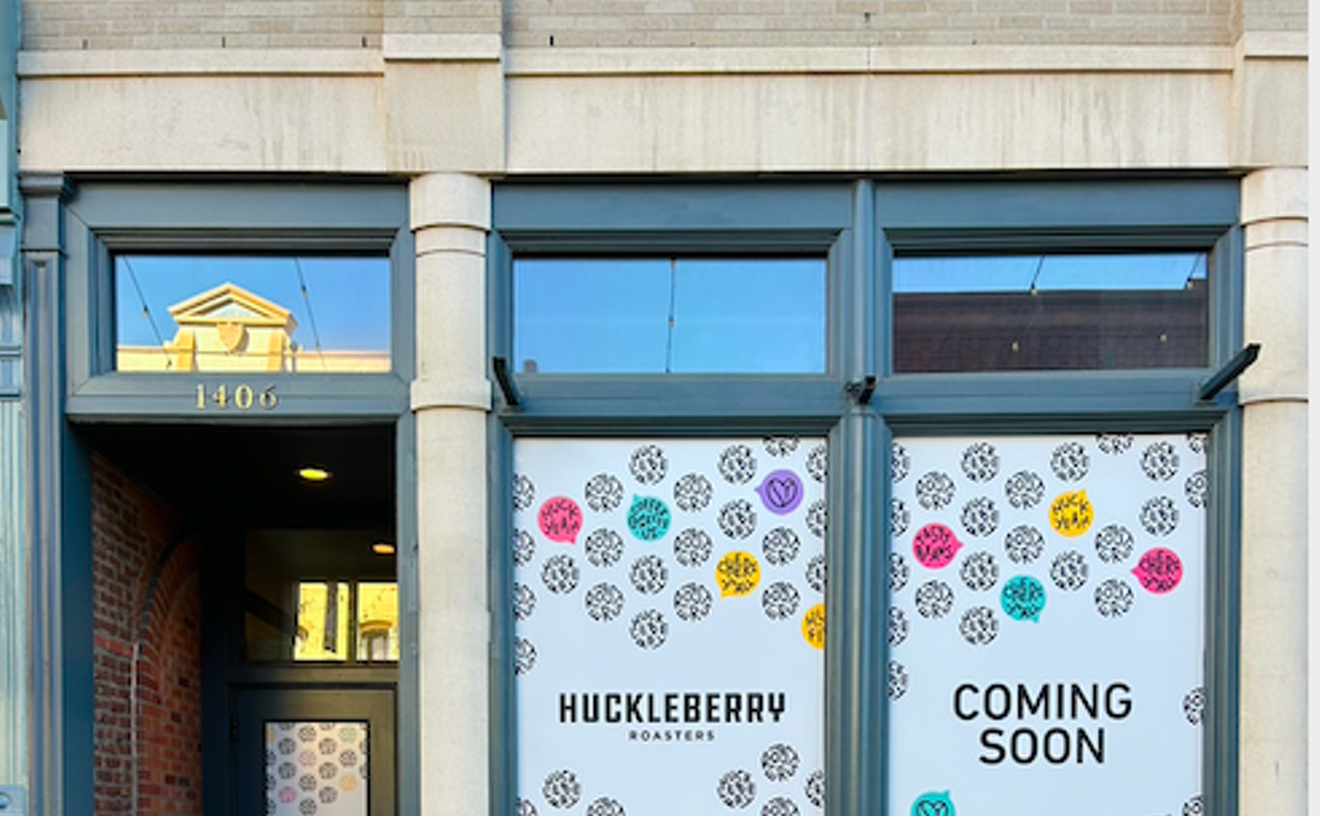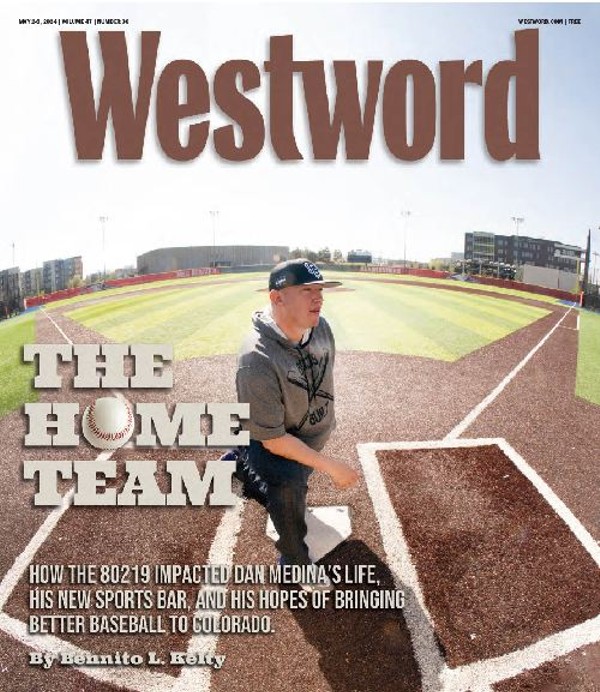The restaurant business is a notoriously hard one. The job is physically demanding, hours are long, and shifts fall on nights and weekends, when everyone else is off. Most people wouldn’t call this fun. But Hosea Rosenberg isn’t most people — and not just because he’s one of the rare souls to win Bravo’s Top Chef. “It was literally like working with pirates,” Rosenberg says of his first job washing dishes in high school. “So much fun that I forgot it was hard work.” We recently talked with Rosenberg about the ups and downs of winning such a high-profile competition, the recent expansion of his Blackbelly empire in Boulder, and how he manages to utilize his degree in engineering physics — yep, you heard that right — from behind a burner.
Westword: In the past few years, you’ve built an enviable operation in Boulder, first with Blackbelly Catering, then Blackbelly restaurant and, most recently, Blackbelly Butcher. What’s next for the Blackbelly family?
Hosea Rosenberg: We still have a lot of work to do at the new butcher shop and market. I have a lot of goals with this business, and it all takes time and patience. However, Denver is the next logical step for us, and I would love to bring Blackbelly to a larger audience.
It’s been seven years since you won Bravo’s Top Chef. Beyond the obvious fame and prize money, how did that victory change your trajectory?
It opened a lot of doors, both professionally and personally. One of the most important rewards from winning was being able to spend time with my father. He was very sick with cancer, and this was the first time in my professional life I could afford to not work and just spend time with my family. It was a very intense yet satisfying time, as we got to know each other a little bit better during all of it. In addition to that time with my dad, I had a number of opportunities to travel the world and cook food with some of the best chefs alive.
It might be counterintuitive, but I’m curious as to whether the win had any downsides — e.g., more pressure about what to do next?
Certainly there was a lot of pressure, and also a lot of unknowns. I hadn’t really thought about what I would do if I won; I just wanted to win. So when I returned home, I was kind of scared about making the right decision. It was also hard reading some of the blogs. People can be pretty nasty when they can anonymously say whatever they want to. But just as in cooking, when you end up in the public eye, you have to have thick skin.
You’ve raised your own pigs and sheep, had a greenhouse, and source as much local produce as possible. Not all chefs are as committed to local ingredients as you are. What fueled your passion?
When I began farming, it was as much about learning and curiosity as it was about sourcing the freshest and best ingredients I could find. I wanted to see the food from beginning to end and have a hand in all of it. I was just catering at the time, and we started with a few pigs, lamb and some produce. As things grew, the farming became a lot more work. In the last year, I’ve had to outsource a lot of the livestock and produce, as our farm situation was just too small. So now at the butcher shop and restaurant, we work with a select few ranchers to raise and harvest some of the best pork, beef and lamb there is in this part of the country.
How long have you been in the business?
I’ve been working in restaurants since high school. But I didn’t realize that I wanted to do this as a career until after college. I made the decision to become a professional chef in the summer of 1998. Since then, it’s been quite a ride. A lot of stories, a lot of friendships and a lot of scars later, here I am.
Why did you decide to start cooking?
The culture of restaurants has always intrigued me. I had my first dishwashing job the summer between my junior and senior year in high school. I had two friends who were busboys, and I wanted to work where they were. They weren’t hiring any more positions in the front of the house, so I took a job washing dishes. It immediately changed my life.
What’s your earliest food memory?
Picking peas with my grandfather in our garden. He used to call me his “pea-pickin’ pal.” I would eat most of the peas before we brought them into the house.
You got a degree in engineering physics from the University of Colorado. Why did you decide to pursue cooking instead? And did you ever practice with your degree?
I always had a passion for and love of math, physics and especially cosmology — space science, not makeup. I was cooking to put myself through college, but all the while had a lot more focus on school than the kitchen. I like to think of myself as a pretty smart guy who solves problems well. I’m very pragmatic. So I believe I use my science background every day in the kitchen. It’s all about problem-solving and logic. Then you add in the creativity, and to me it’s the perfect job! I didn’t get a degree in culinary arts, so I think it’s shaped the way I cook. I seem to apply the scientific method.
Current trends have led to a drop in fine-dining restaurants and an explosion of fast-casuals. How will this impact the next generation of chefs? You were fortunate to work under greats such as Wolfgang Puck, Kevin Taylor and Dave Query.
There will always be a place for fine dining. It’s where most young chefs look for inspiration and knowledge. Had I not been working in tough, exacting kitchens, I wouldn’t have the ability to do what I do now. As one of my mentors says, “You have to learn to crawl before you can run.” If you don’t learn the fine techniques, the basics, then you can’t expand on them. I think the public gravitates toward quick, easy food because that’s where our culture is headed: Everything is fast. But the best meals are always made with love, and you can’t rush love. Speaking of Puck, Taylor and Query, what was the most important thing you learned from them?
Puck taught me that this is the land of opportunity. It doesn’t matter where you came from or who your parents are, you can succeed if you put in the work. Kevin taught me a lot of the cooking techniques I know, as well as some serious work ethic. He’s no-bullshit. And DQ taught me how to successfully run an operation. It’s about the people you have on your side. His way with his employees is hard to describe, but when you have employees working for you more than twenty years in a row, that says a lot about who you are and how you treat people.
What do you consider your signature dish? Is it the venison with blackberry demi-glace that you made for the winning meal on Top Chef?
No. That was a dish I made under pressure. My signature dish now is my green-chile posole. I grew up in northern New Mexico. We know green chile, and we know how it’s supposed to taste, with real green chiles from Hatch and nowhere else.
You grew up in Taos, so I have to ask: Where’s the best place in the metro area for New Mexican red and green chile?
Can I plead the Fifth?
Biggest flop you’ve ever served:
That’s a tough one. I’ve definitely had some unpopular dishes throughout the years. There was a scallop dish at Jax that didn’t stay on the menu very long. It was coffee-dusted scallops with pineapple and soba noodles. I thought it would be epic, but wasn’t really a good seller.
This is a hard business, especially when you’re in an expansion phase, as you are now. What keeps you relaxed and motivated?
My girlfriend and time off keep me relaxed. I have made a point over the years to make sure I look out for my own personal happiness, because this business can eat you up. I take time off and I travel. When I’m at work, I’m 100 percent focused on work, but when I leave, I really try to clear my head.
Hardest moment in your career, and what it taught you:
No question, it was the six weeks I was filming the show. It’s pretty easy to watch something like that on TV and think to yourself, “I could do so much better than those guys.” But when you’re away from all of your friends and family and 100 percent cut off from the outside world, it’s a different situation. It’s a head game. It’s very, very hard to stay focused and confident when you start questioning every decision you make. It was not fun in the least.
Guilty pleasure in terms of food:
Chili-cheese Fritos. Reminds me of Frito pie back home.
What ingredient are you excited about right now?
All of the amazing produce coming out of the farms. The cherries we’re getting from the Western Slope are so damn good right now, I can’t get enough. Looking forward to peaches and corn in the coming weeks.
One ingredient you wish would disappear:
Anything Monsanto makes.
You traveled extensively following your Top Chef win. If you could live anywhere in the world, where would it be?
I fell in love with New Orleans during those travels. I was very close to moving there, but the humidity and lack of mountains finally made me give up that one for now. I would actually love to find a small beach town somewhere very far away and just serve fish tacos when I get on in years. Doesn’t matter where it is, as long as there aren’t a lot of people and my lady is with me.
Best tip for a home cook:
Buy good ingredients. The better the food, the better your meal will be.
Any question you wish I’d asked you?
“Who’s the most exciting chef in Denver?” I think the chefs who are really pushing the envelope and helping Denver become more of a serious dining destination are Alex Seidel, Max MacKissock, Steve Redzikowski and Kelly Whitaker. There is a lot of talent in town now, and the list goes on, but these guys are definitely at the top of their game.
Blackbelly is located at 1606 Conestoga Street in Boulder. For more information, call 303-247-1000 or go to blackbelly.com.
[
{
"name": "Air - MediumRectangle - Inline Content - Mobile Display Size",
"component": "12017618",
"insertPoint": "2",
"requiredCountToDisplay": "2"
},{
"name": "Editor Picks",
"component": "17242653",
"insertPoint": "4",
"requiredCountToDisplay": "1"
},{
"name": "Inline Links",
"component": "18838239",
"insertPoint": "8th",
"startingPoint": 8,
"requiredCountToDisplay": "7",
"maxInsertions": 25
},{
"name": "Air - MediumRectangle - Combo - Inline Content",
"component": "17261320",
"insertPoint": "8th",
"startingPoint": 8,
"requiredCountToDisplay": "7",
"maxInsertions": 25
},{
"name": "Inline Links",
"component": "18838239",
"insertPoint": "8th",
"startingPoint": 12,
"requiredCountToDisplay": "11",
"maxInsertions": 25
},{
"name": "Air - Leaderboard Tower - Combo - Inline Content",
"component": "17261321",
"insertPoint": "8th",
"startingPoint": 12,
"requiredCountToDisplay": "11",
"maxInsertions": 25
}
]




